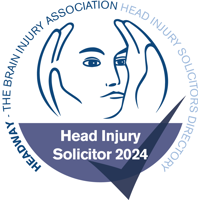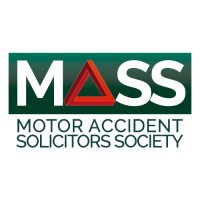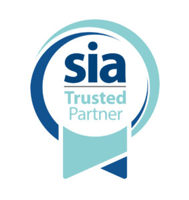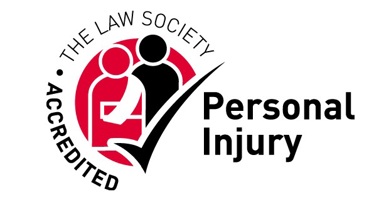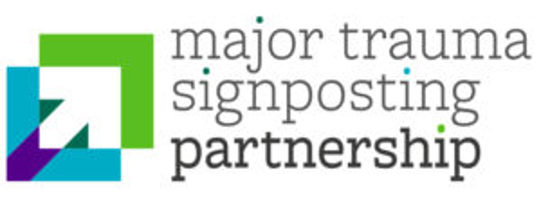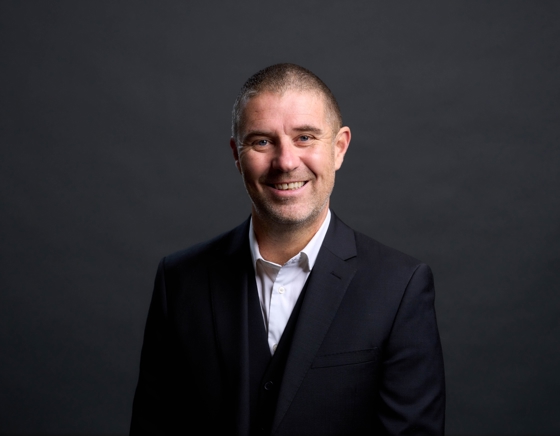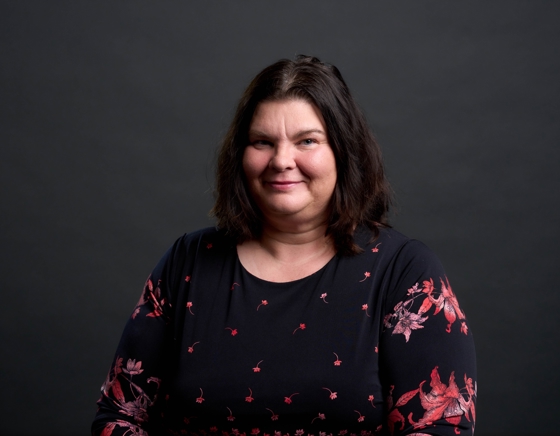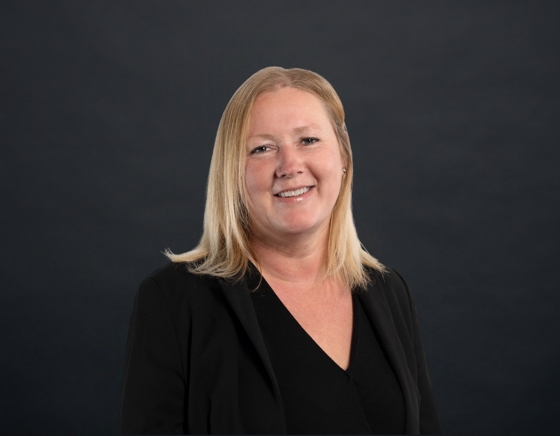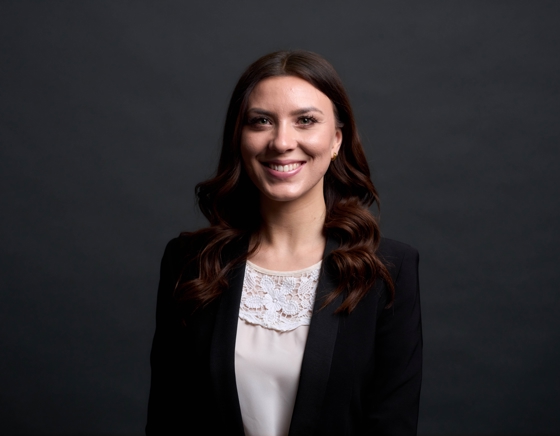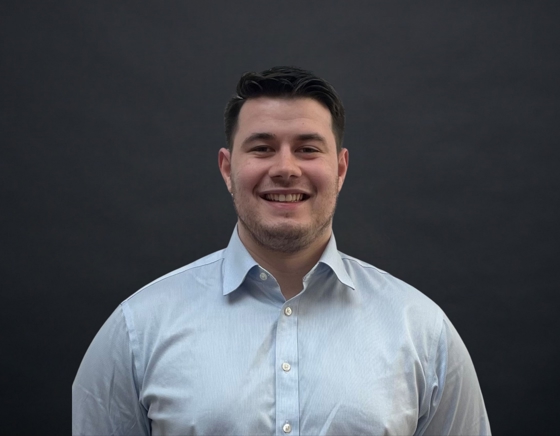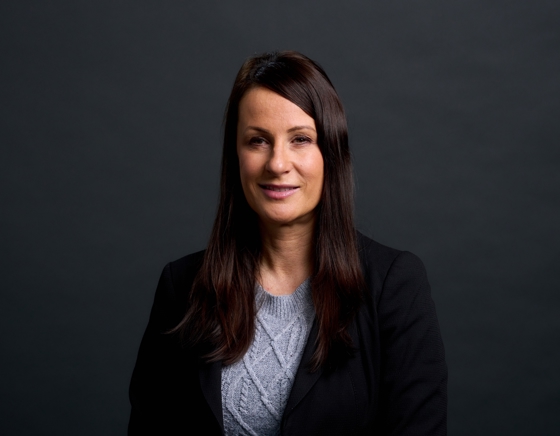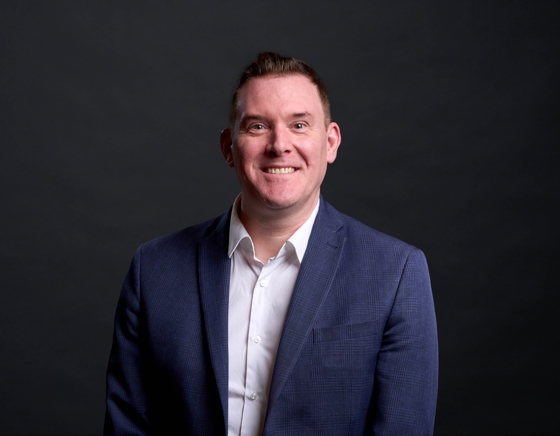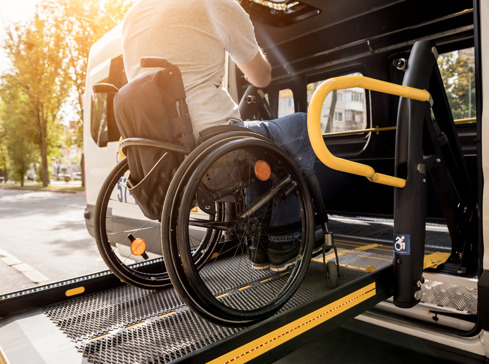Personal Injury Solicitors
Guiding you through all aspects of personal injury claims
We help people who have sustained serious injury access the financial, physical and emotional support they need to adapt and rebuild their lives. We are here to secure the best possible future for you and your family.
We are a highly specialist team of personal injury lawyers, with significant experience across this complex area of law – but we offer much more than legal support. As our client, you will benefit from our holistic approach because from the outset we work with you to identify what is important, and help to put in place the support and rehabilitation needed.
If you instruct us, you will receive a personalised service from your solicitor because we build long-term relationships with all of our clients. What is important to you is important to us: to achieve the best outcome – even in the most difficult cases.
Renowned for going the extra mile for our clients, members of our team are highlighted in the legal directories.
Request legal advice on personal injury
What is a personal injury claim?
A personal injury claim is a physical or psychological injury, illness or distress that has been caused as a result of an accident or by negligence.
If you suffer personal injury because of the negligence of another person or organisation, we will work with you in your claim for compensation for your injury. This is called general damages.
You may also be eligible for compensation for financial losses, known as special damages, and we will advise you on this. Often determined by expert evidence, there are many elements that are taken into account when assessing your entitlement to compensation. These special damages can include funding for specialist equipment, mobility aids, modifications, specialist treatment and care.
Related experience
Who can make a claim?
If you have suffered personal injury following an accident that was not your fault, we can help you make a claim for compensation. To succeed in any claim, we will have to prove the person or organisation who caused the accident:
- Had a duty of care to the injured person
- Breached that duty of care and the injury was sustained because of the breach.
If you are the injured person and can understand the decisions that need to be made during the course of litigation, we can work directly with you to pursue the claim.
However, if the injured person is a child, an adult must make a claim on their behalf. Known as a “litigation friend”, the adult could be: a parent or other family member, guardian, friend, social worker, or a solicitor.
It is important to note that if a child is injured, they can start their own personal injury compensation claim when they reach the age of 18. In this case, the usual three-year limit begins on their 18th birthday, which means they must start court proceedings before their 21st birthday.
A capacity assessment will be required if the injured person cannot understand the decisions that need to be made during the course of litigation. This may arise following traumatic brain injury.
If the injured person lacks capacity, we have to appoint a “litigation friend” to assist the person making the claim. This could be: a parent or other family member, guardian, friend, social worker, or a solicitor.
A deputy is often appointed by the Court of Protection if the injured person does not have capacity to manage finances.
There is no three-year time limit to launching a claim if the injured person lacks capacity. However, if they regain mental capacity, the three-year time limit will start to run from the time they regain capacity.
We can also support compensation claims for someone who has died, if you believe negligence was the cause. However, the rules can be complicated and depend on the specific case, family dynamic and if the deceased person left a will.
In a fatal accident claim, the people who can make a claim include:
- A spouse
- An unmarried partner who had lived with the deceased for at least two years immediately before they died
- Direct descendants, which includes adopted children and legal step-children
- Family members such as parent, grandparent, brother, sister, aunt, uncle, niece, nephew or cousin
- The deceased’s executors or personal representatives.
How our solicitors can help
Our personal injury solicitors are specialists in their field and only deal with serious injury cases. Our lawyers have dealt with – and are currently dealing with – brain injury, spinal injury, amputations, serious orthopaedic injury, disease and occupational illness, chronic pain and severe psychological injuries.
You, the client, are always at the centre of the process and everything we do is to try to ensure the best outcome for you and your family. This approach means we achieve excellent results.
We believe early intervention is the best way to help minimise the disruption that you will be experiencing in such a challenging time of your life.
Because we are a broad-based practice that offers holistic support, we work with our colleagues in other legal disciplines to support your case, if needed. It means you will benefit from a seamless, one-team approach.
We understand how stressful it can be to consider pursuing legal action against the person or organisation who caused your accident, while at the same time recovering or adapting to injury. We also understand the impact that this will inevitably have on family.
It is why we focus on you and also on your family as we work together to help you rebuild your life.
You could not be in safer hands. We are:
- One of three law firms selected by The Queen Elizabeth Hospital Birmingham to support patients at the hospital as part of the 4 Trauma 4 Patients support service
- One of three firms selected by the University Hospital of Coventry and Warwickshire operated by Cardinal Management to support patients as part of the Major Trauma Signposting project
- One of three firms selected by the Birmingham Women’s and Children’s Hospital operated by Cardinal Management to support patients as part of the Major Trauma Signposting project
- Accredited members of Headway’s Head Injury Solicitors Directory
- Spinal Injuries Association trusted legal partner for the West Midlands
- Members of:
- The Motor Accident Solicitors Society
- Association of Personal Injury Lawyers
- Birmingham Law Society
- Approved Law Society Personal Injury Panel
- Recognised in Chambers and Partners Directory
- Recommended by the Legal 500 as leading personal injury lawyers.
What is the role of a personal injury solicitor?
We pride ourselves on providing a personalised approach – you are not just a client: our personal injury solicitors get to know you, understand your needs and work to resolve your case in the best possible way.
A personal injury solicitor should meet with you face to face and understand more about what has happened and the impact of the accident on you and your family. They will notify the organisation responsible for providing compensation, ordinarily an insurance company.
But compensation is just one way personal injury solicitors help in the wake of a life-changing injury. In most cases it will be appropriate for the solicitor to facilitate rehabilitation to support you on the road to recovery. We have relationships with the best rehabilitation providers in the area and can direct you to the one that is best equipped to assist with your very individual circumstances.
Personal injury solicitors are also responsible for seeking interim payments to help ease the financial burden that can often occur in the immediate aftermath of an injury. These payments can be crucial to help keep you afloat in those early days and weeks and, crucially, to ease stress at a time when focussing on recovery should be central.
We will also make an immediate start on collating evidence of your losses and begin the process of instructing medical experts to assess and report on the injuries sustained with a view to building the legal case.
Our lawyers will draw on their rich experience to start assessing the value of your claim and will fight for the best outcome by negotiating the highest settlement possible.
Often we are able to achieve a good result for our clients quickly and effectively through negotiation but, when absolutely necessary, we can prepare your case and take it to court.
Access to rehabilitation and medical care
For many of our clients, rehabilitation is an important aspect of their personal injury claim, so we offer specialist support through our in-house rehabilitation and support co-ordinators who have a background in health and social care.
Their job is to:
- identify the support you need and help you access it
- help co-ordinate your discharge from hospital and get you home safely
- access care from the local authority or Integrated Care Board
- collaborate and work with the treating therapists
- liaise with a case manager
- provide emotional support
- support your family.
This specialist service means many of our clients can access some therapies quicker than if they waited for NHS provision. This enables them to rebuild their lives and meet their goals sooner.
As part of your claim, we work with medical experts, support groups and care providers to ensure you receive the rehabilitation you need and can help you to access a range of specialist rehabilitation support and medical treatment privately. We will often do this by liaising with the proposed compensator to try to agree either direct funding or an interim payment. If the treatment costs are not paid directly by the compensator, they are often included as part of your claim.
To help you achieve the best outcome in your claim, we work with some of the best case managers and rehabilitation providers in the country.
How we will deal with your claim
Most claims have to begin within three years (however, if a case involves a child, the limitation period begins on their 18th birthday).
There are specific processes that have to be undertaken as part of a personal injury claim:
- Establish who was responsible – this is not always as straightforward as you think. Was it your workplace, another organisation, the manufacturer of a piece of equipment? We will liaise with the proposed compensator to try and obtain an admission of liability.
- Gather the appropriate evidence to support your claim – depending on the case, this might include obtaining the police report, witness statements and photographs, gathering dashcam or CCTV footage or information from the Health and Safety Executive.
- Arrange medical care or rehabilitation – in most cases we look to appoint a case manager to help identify and co-ordinate the treatment and support you require. This can be particularly important when NHS treatment is limited.
- Access interim payments. Interim payments are part payments against the global value of the claim and help you to pay your bills while the case is considered.
- Assess your injuries or illness – this will include obtaining your medical records and instructing independent medical experts to prepare expert evidence.
- Work out compensation – to do this, we assess:
- The extent of your injuries, taking into account pain, suffering and loss of amenity
- The cost of medical treatments, therapies or rehabilitation incurred or required in the future
- Your travel costs to medical appointments associated with the case
- If you have lost income or you cannot carry out the job you had before
- Any equipment, such as wheelchairs, prosthetics, or an accessible car, that you have had to buy or are going to need in the future
- Any home adaptations you have made or will require. This may include the cost of moving to an accessible property
- If you have incurred care costs or your condition is likely to mean you require care in the future
- If you have incurred damage to property, such as car, bicycle, clothes etc.
The compensation takes into account any losses you may face in the future.
- Reach a settlement – once we have obtained all the evidence required to establish your claim, we will draft a schedule of your losses. This will be sent to the compensator with a view to agreeing a settlement. You only get one opportunity to conclude your claim favourably, so it is important we achieve the right result for you. If we are unable to agree a compensation award with the compensator, we may advise proceeding to court.
- Payment – once a settlement is reached, you will receive your compensation. This is usually a lump sum payment, less any interim payments you have received. In some cases, provisional damages can be agreed if there is a chance your injuries could lead to other conditions in later life. If there is a need for future care, case management or court of protection costs, it may be necessary for your claim to be settled as a periodical payment order basis. This means an annual payment is made for care, case management or court of protection costs, which can be linked to inflation.
- We are well versed in setting up personal injury trusts (see below), which will safeguard your entitlement to means-tested benefits.
- As we are a broad-based practice, we work with our colleagues in other legal disciplines to support your case, if needed. It means you will benefit from a seamless, one-team approach within the Higgs family. This may be needed because following serious personal injury, you may need to seek advice on:
- Property – for a house move
- Trust – setting up a personal injury trust
- Employment – issues relating to returning to work safely
- Family – in the event of relationship breakdown or child access issues.
What will compensation pay for?
The aim of compensation is to try to put you back in the position you were in before the accident. Your compensation award will often be a lump sum, which takes into account compensation for your pain, suffering and loss of amenity (general damages) and the financial losses incurred or to be incurred in the future (special damages). Compensation awards vary depending on the specific details of the case but generally fall into:
- General damages/injury
- Loss of earnings
- Loss of pension
- Care and assistance provided with personal care and domestic duties
- Travelling expenses
- Damaged equipment/clothing
- Past therapies – physio, OT, psychology, speech and language therapy etc
- Case management support
- Temporary accommodation costs
- Aids and equipment
- Medication
- Future treatment
- Future case management
- Future therapies
- Future care
- Future private surgery
- Future accommodation.
Personal injury trusts
We are specialists in setting up personal injury trusts, which protect your entitlement to means-tested benefits. When the funds are paid into a trust the amount held in that trust is ignored for the assessment of benefit entitlement.
The trust must be managed by two or more trustees (and you, as claimant, could be one of these) or a trust corporation.
The trustees make decisions together about how the funds, which are there for everyday living expenses, are managed.
A personal injury trust should be set up before you receive the compensation funds because it will mean there will be no loss of benefits or care funding entitlement.
This is particularly important because there is a 52-week grace period during which time any compensation you receive does not count towards means-tested benefits or counted as part of any financial assessment for care fees. After this time, any compensation funds not in a personal injury trust will be included in an assessment.
Typical pay-outs for personal injury in the UK
The compensation you receive will depend on the severity of your injuries and how much support you will need. However, it may not be possible to make an assessment of your likely compensation at the point we are consulted as we may require expert evidence to determine the long-term prognosis.
The compensation you receive for your injury (general damages) will be determined by similar cases reported at court. We will also use the judicial studies guidelines. Your compensation for special damages (costs incurred and to be incurred in the future) will depend on the expert recommendations and the amount of treatment or care you may need in the future
No win, no fee funding
When you first contact us, we will determine if you have any existing legal expenses cover that you can use. If you do not have cover, we may be able to offer a no win, no fee arrangement. This means if your claim is unsuccessful, you pay nothing. There are no hidden charges. Our focus is on supporting you, not on profits.
FAQs
You do not need to worry about the cost of making a claim.
We will investigate whether or not you have legal expenses insurance cover available. The level of cover available under a legal expenses insurance policy is normally insufficient to pursue a serious injury case and there are often restrictions on who you can appoint as your solicitor. We would discuss alternative options with you, which may include taking out an ‘after the event’ insurance policy to provide you with the protection you need.
We discuss all funding options with you, but the most appropriate form of funding is usually a conditional fee agreement, also known as a no win, no fee agreement. If your claim is successful, the compensator will be responsible for paying your compensation and your legal fees at the end of the case. If your case is unsuccessful, you do not have to pay these charges.
The most common types of personal injury claim often arise from a road traffic accident. It is illegal to drive on the roads in the UK without valid insurance. When an accident is caused by an uninsured or untraced driver, the Motor Insurers’ Bureau will often provide compensation.
Claims arising from accidents at work are also common and it is necessary for all employers to have valid employer’s liability insurance cover.
Accidents in a public place are common. These cases are often made against Local Authorities or private landowners.
If you lose your claim, you have nothing to pay provided you have taken out ‘after the event’ insurance cover to protect you against the costs incurred by your opponent. You only have to pay the insurance premium if your claim succeeds, and you are awarded compensation. The ‘after the event’ insurance policy will also pay for the expenses incurred in progressing your claim, for example medical report and court fees. These are called disbursements.
Pursuing a claim for compensation is complex and while low value soft tissue injury claims can be pursued without legal support, serious injury cases should not. It is imperative you seek specialist advice about your entitlement because you have one opportunity to conclude your claim fully and favourably, to provide for your future needs.
No. The assessment of lost earnings is calculated with reference to the net earnings, so tax is not paid on this aspect or any other aspect of the claim.
The Compensation Recovery Unit is part of the Department for Work and Pensions (DWP). At the point a claim is submitted to the compensator, the compensation recovery unit is notified. The department will seek to recover from the compensator some of the costs incurred by the NHS in treating patients in accidents that were not their fault.
If welfare benefits are awarded in connection with an accident, those benefits are treated as a loan and the DWP will seek to recover payments made from parts of the compensation by providing a certificate of recoverable benefits. For example, if we recover £10,000 for lost income as part of the claim and you have received £3,000 in benefits, the compensator will reimburse the DWP the sum of £3,000 and account to you for the difference of £7,000.
Sometimes but rarely. Your case has to be prepared on the basis that it may go to court, but it is usual for cases to be concluded without the need for court proceedings.





